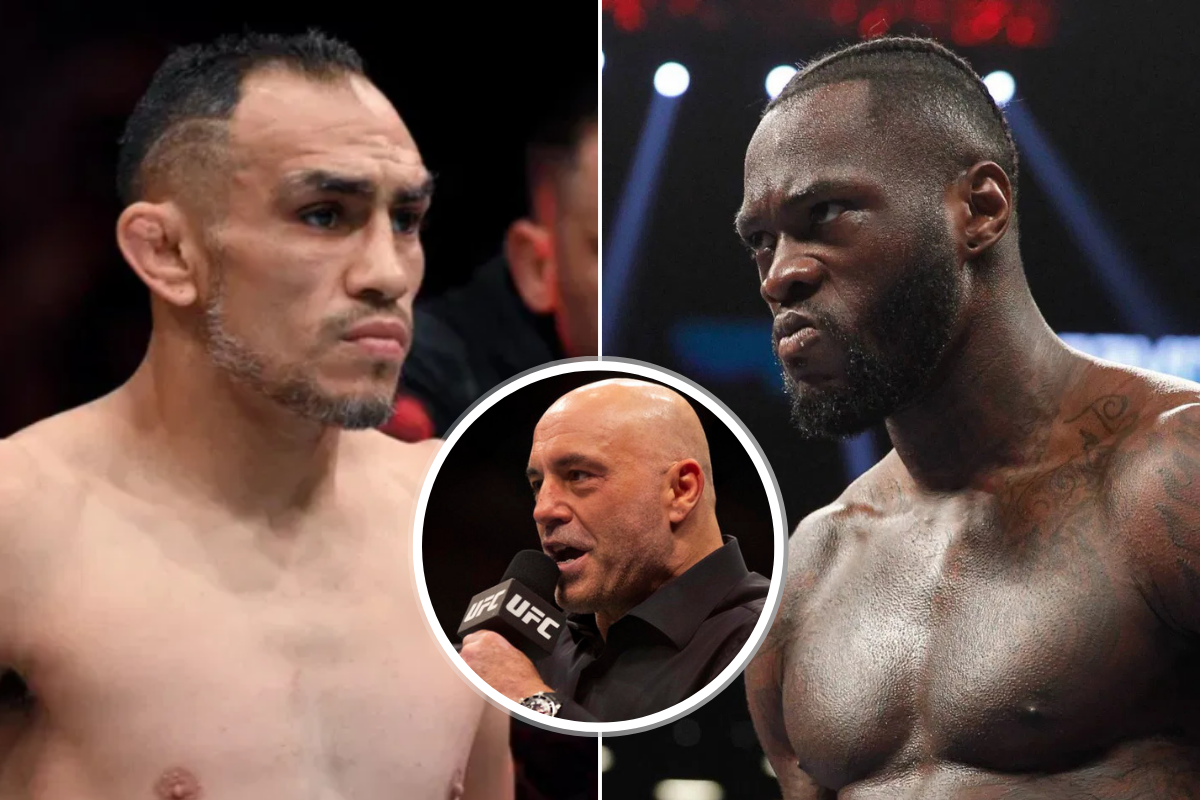
Imago
Credits: IMAGO

Imago
Credits: IMAGO

Imago
Credits: IMAGO

Imago
Credits: IMAGO
The mental battles fighters endure after devastating losses are often underestimated, and Joe Rogan believes it’s time to change that. While discussing Deontay Wilder‘s two losses to Tyson Fury, the JRE host shifted the conversation from physical preparation to the psychological toll that combat sports exact on fighters. Wilder’s 2018 fight with Fury revealed a significant weakness in his game—his struggle on the back foot. This, according to the UFC commentator, proved pivotal in both rematches, where Tyson Fury got the better of Wilder early on. And after the brutal losses to Fury, Wilder was never the same. This brought Rogan to a broader conversation on the mental resilience of fighters, especially in the face of defeat.
Watch What’s Trending Now!
The UFC commentator noted that severe losses, particularly knockouts, can plant seeds of long-term doubt. History shows how strongly these moments affect fighters: Ricky Hatton struggled with depression after losing to Floyd Mayweather, Tony Ferguson‘s career collapsed due to worsening mental health issues and his decision not to call it quits, and Dustin Poirier said that his defeat to Justin Gaethje drove him to a dark place.
According to Joe Rogan, such situations demonstrate that the fight game necessitates structured mental health assistance in addition to physical training. On JRE #2364, Rogan told guest Brandon Epstein, “But you understand, you do more than anybody, the destruction of the belief system and how difficult it is for fighters to manage that.”
Epstein, a mental performance coach, responded, “But if you do the work to rebuild it afterwards, you’re stronger.” The UFC commentator agreed, emphasizing that many sportsmen are unsure where to begin when attempting to recover mentally after a loss. He explained that fighters frequently have trainers for all aspects of their training, including striking, conditioning, strength training, and stretching, but no specialized mental coach.
Without help, a fighter returning from a terrible loss may struggle with confidence issues, derailing their comeback. Further on the podcast, Joe Rogan emphasized that restoring a fighter’s mental condition should be as important a part of camp as sparring or weight cut, but the infrastructure for that support remains absent in MMA and boxing.

USA Today via Reuters
MMA: UFC 278- Albazi vs Figueiredo, Aug 20, 2022 Salt Lake City, Utah, USA Joe Rogan after the fight between Amir Albazi red gloves and Francisco Figueiredo blue gloves during UFC 278 at Vivint Arena. Mandatory Credit: Jeffrey Swinger-USA TODAY Sports, 20.08.2022 17:42:50, 18903440, Nestorians, Joe Rogan, MMA PUBLICATIONxINxGERxSUIxAUTxONLY Copyright: xJeffreyxSwingerx 18903440
Credits: Imago
As the sport evolves, the JRE host’s call for integrating mental performance coaching into fight camps may prove critical. With so many careers defined not only by talent but also by mental toughness, his effort may be what motivates fighters and promoters to finally confront one of combat sports’ most chronic blind spots.
Breaking down the impact of mental health on fighter performances
Joe Rogan’s call for mental performance coaching becomes more compelling when you consider the toll MMA and boxing take. Anxiety, depression, insomnia, and PTSD are common, affecting up to one in every four individuals in the general population each year, a ratio that is likely higher for fighters due to intense training and competition pressures.
MMA’s “push through pain” ethos frequently results in poor recovery, insomnia, immune system drops, and lower motivation. Fighters have higher trait anxiety than non-fighters, which reduces performance under pressure. In boxing, repetitive head trauma increases the likelihood of depression, while poor self-efficacy following losses can worsen mental health struggles.
Mental coaching can help. In professional baseball, players with mental skill instructors lived 2.3 years longer and performed better than those without. Increased consistency, fewer slumps, and improved life balance were seen. Across sports, 55% of coaches have experienced mental illness themselves, showing that mental health is a common concern in athletics.

